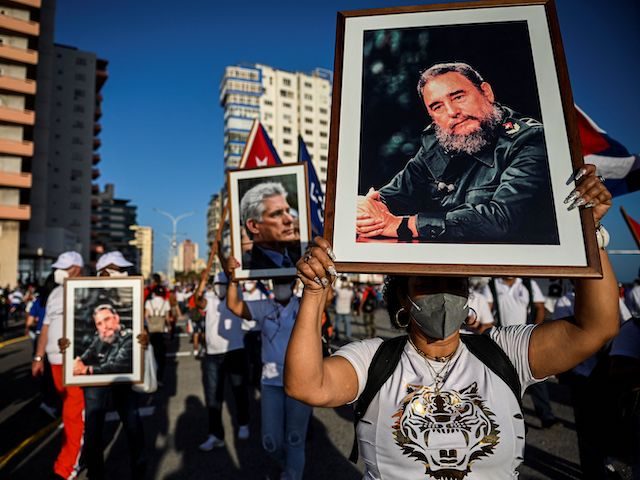Cuban dissident leader and human rights activist Rosa María Payá Acevedo told a House Foreign Affairs subcommittee hearing on Tuesday that the free world should treat Cuban Communism as an unacceptable moral horror, the same way South African apartheid was defeated with intense international pressure in the 1980s.
Payá urged the U.S. government to apply even stronger sanctions against the Cuban Communist government, rather than making “unilateral concessions that benefit the regime.”
Payá said the Cuban people are “in the streets fighting for freedom” and the U.S. should help by applying “individual sanctions to high-ranking officials of the regime involved in human rights abuses,” including the “brutal repression” of thousands involved in the current demonstrations.
Payá strongly disagreed with fellow subcommittee hearing witness José Miguel Vivanco, executive director of Human Rights Watch, who said the few remaining pillars of the embargo on Cuba should be lifted because it hurts ordinary Cubans and alienates them from American influence.
“Rather than isolate Cuba, the policy has isolated the United States,” Vivanco argued.
Payá noted Cubans are not risking their lives by marching in the streets to demand the lifting of sanctions.
“They were not asking for the end of the embargo. They were asking for the end of the dictatorship. The end of the dictatorship is a demand of the Cuban people. That’s the demand alone, and that’s the demand we need solidarity to,” she said.
“It is a moral imperative to stop the regime abuses after 62 years of crimes against humanity perpetrated by a military dictatorship that has never been held accountable,” she said, comparing Cuba to South Africa under apartheid. She recommended an approach similar to the one that destroyed the international credibility of apartheid, such as excluding the Cuban regime from events like the upcoming Summit of the Americas.
The Cuban government should not technically be allowed at the Summit of the Americas as the organization behind it, the Organization of American States (OAS), requires all its members to be democracies. The OAS excluded Cuba from its ranks until 2009, when fellow authoritarian socialist leaders in Bolivia, Brazil, and Venezuela had earned a vote in the international agency. Cuba’s recent appearances at the Summits of the Americas have been defined by extreme violence, vandalism, and disturbances intended to silence democratic states.
In remarks Tuesday, Payá said lifting sanctions would be a “mistake” because it would “give funds to the police and the military, who oppress the people by obeying the generals.”
“We urge the government of Joe Biden not to make unilateral concessions, but to ask for the release of political prisoners, an end to repression, and respect for fundamental freedoms, including the legalization of [opposition] political parties,” she said on behalf of her pro-democracy organization Cuba Decide.
Payá also stressed the importance of breaking the Cuban regime’s grip on communications, including its ability to control social media, which has been blocked since protests began on July 11. Florida Gov. Ron DeSantis asked his state’s internet companies last week to activate wifi hotspots that could help Cubans bypass regime censorship, a strategy Payá endorsed.
In a February op-ed, Payá urged the Biden administration to take various steps to delegitimize the Cuban regime until “free, fair, and multiparty elections” can be held, including many of the same suggestions she made at the Tuesday subcommittee hearing. She also compared Cuban Communism to apartheid in that piece.
“Biden and Congress should make no unilateral concessions, but rather ask Cuba to make irreversible steps toward the recognition of fundamental human rights,” she wrote.
In her op-ed, Payá noted that the Cuban government has resisted U.S. and international demands for an independent investigation of the 2012 murder of her father, human rights activist Oswaldo Payá, by agents of the Castro regime. She accused the Cuban state of spreading political instability throughout Latin America and stealing much of the humanitarian aid sent to the Cuban people – offenses she cited as evidence that Cuba’s government should not be treated as legitimate or welcomed into international forums.

COMMENTS
Please let us know if you're having issues with commenting.